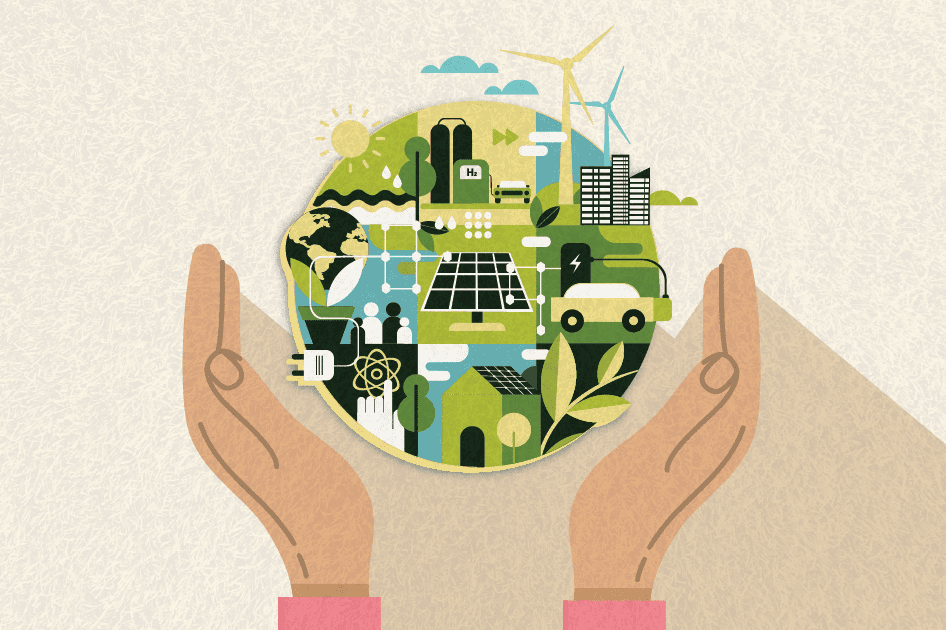Ignoring Climate Change Education Risks Students’ Future
Climate change affects students and our future. Climate is intertwined with education, the economy, immigration, housing, health, and other policy areas.

Today, we mourn the tragedy of the devastating wildfires in Southern California. Not only have lives been lost and houses destroyed, but more than a half a million children are impacted. Los Angeles Unified School District (LAUSD), the nation’s second largest school district, is closed — that’s more than 1,000 schools shuttered due to the historic rapid wildfires and/or toxic air quality. In addition, at least three LAUSD schools were completely destroyed, as were some schools in neighboring districts. As the wildfires have spread, so have the school closures: Nearly two dozen additional districts in the region are closed as well.
Whether people want to admit or not, climate change has created the unprecedented conditions for these fires. And as humans continue to emit greenhouse gases, the climate crisis will only make extreme weather events like this more common — meaning many more students missing school in the future. The longer we continue to ignore climate change, the worse these calamities will be. Our nation’s students deserve to have climate education in their curriculum, as they will be the ones inheriting this planet, and will need to find viable solutions to this burgeoning crisis.
My awareness of the climate change began with Hurricane Katrina in 2005. Though my family and I were hundreds of miles away from New Orleans, the storms we experienced in Dallas when I was a child were some of the scariest I can remember. In the following weeks, I often heard school staff talk about the potential of many families and students coming to Dallas because they lost their homes. This event made me realize just how fragile our world is.
After that, I only encountered discussions about the environment during my environmental science course in high school. Even then, I don’t remember spending much time discussing global warming, its potential impacts, or future solutions. We mostly talked about different ecosystems, biodiversity, and energy resources. That was my senior year. It was far too late for me to learn about the environment. I am now 29 years old, with two higher education degrees, and only this year have I started to gain a fundamental understanding of climate change. This should not be the case for our nation’s current students and future generations — the matter is too urgent. The need is clear: students — and their parents — demand to learn more about climate change, before it’s too late.
Research shows that while 79% of students recognize climate change as real and human-caused, many still lack a comprehensive understanding of it and carry anxiety from it. Educating students about climate change can help alleviate their anxiety by empowering them with knowledge and actionable solutions. Survey data shows that 37% of teenagers feel anxious, helpless, and overwhelmed by climate change. Failing to provide students with the information they want and need risks stifling their ability to care, reducing their stress, and limiting learning that could help them think through solutions.
Additionally, climate change disproportionately impacts communities of color. From 2002-2019, public schools in California have reported approximately 34,000 days closed due to natural disasters, extreme weather, and emergencies, affecting millions of students. We already know communities of color are disproportionately affected by climate change. When extreme weather leads to school closures happening more frequently, this may mean that students of color miss out on learning time due to climate change.
One reflection from the election is that climate policy affects everything, and we often forget that. This disconnect raises questions about how much is due to a limited understanding of climate change and how much is related to prioritization. More importantly, how does climate change impact other issues, specifically education?
We should view climate as intertwined with education, the economy, immigration, housing, health, and other policy areas. By prioritizing climate education, we can create onramps for students of color to be ready for and access future green jobs. Additionally, understanding how climate change influences health will help us understand the link between extreme heat and school absences, or how high-pollution diesel school buses, which exacerbate asthma symptoms for students, also makes students miss school.
Teaching climate education to students varies by state and often can be very limiting. But some states are more proactive than others. For example, New Jersey is the first state to include climate content across all grades and subjects in its education standards. Colorado offers a “climate seal,” allowing students to earn a certificate in climate science by completing specific courses and community projects. Despite the new administration, which is threatening to deregulate environmental guardrails, there is still an opportunity to pass effective climate change on the state level. There are some state leaders who are open to additional climate education standards and advocates can find ways to be creative in states where policies are limited.
We cannot afford to wait. States and local governments should take the opportunity to support honest, action-oriented climate instruction in their schools and invest in climate-resilient school infrastructure. Universities can be leaders in decarbonization and model climate solutions for their larger community. Advocates need to take on climate policy as education policy and collaborate with new partners to empower student agency. One place to start is a new Climate Education Policy Toolkit from the North American Association for Environmental Education, with resources for advocates in both climate supportive and climate hesitant states. And we all need to put pressure on our elected leaders to know our climate and our nation’s future is an urgent priority for a just society and America’s economic and national security.
Andres Hernandez Jr. is a Congressional Hispanic Caucus Institute postgraduate fellow